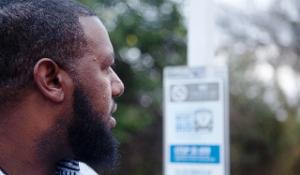Black Americans are nearly four times more likely to get busted for marijuana possession than white ones, even though both groups smoke pot at roughly comparable rates, the ACLU said in a report released Tuesday. The report, "The War on Marijuana in Black and White: Billions of Dollars Wasted on Racially Biased Arrests," is based on the annual FBI Uniform Crime Report and US Census Bureau Data.

In some counties, the disparity rose to 15 times more likely, and in the Upper Midwest states of Illinois, Iowa, and Minnesota, blacks were eight times more likely to be arrested for pot possession than whites. Nationwide, blacks were 3.73 times more likely to get arrested for marijuana than whites.
And it's getting worse, not better. The report found that even though the racial disparities in marijuana arrests existed 10 years ago, they have increased in 38 states and the District of Columbia.
"The war on marijuana has disproportionately been a war on people of color," said Ezekiel Edwards, director of the ACLU Criminal Law Reform Project and one of the primary authors of the report. "State and local governments have aggressively enforced marijuana laws selectively against black people and communities, needlessly ensnaring hundreds of thousands of people in the criminal justice system at tremendous human and financial cost."
In budgetary terms, that cost to the states was $3.61 billion in 2010 alone, the report found. During the decade the report studied, despite aggressive enforcement and rising marijuana arrest rates, all those arrests failed to stop or even diminish the use of marijuana, and support for its legalization only increased.
"The aggressive policing of marijuana is time-consuming, costly, racially biased, and doesn't work," said Edwards. "These arrests have a significant detrimental impact on people's lives, as well as on the communities in which they live. When people are arrested for possessing even tiny amounts of marijuana, they can be disqualified from public housing or student financial aid, lose or find it more difficult to obtain employment, lose custody of their child, or be deported."
The report recommends legalizing, taxing, and regulating marijuana, which it said would eliminate racially-targeted selective enforcement of marijuana laws, save the billions of dollars spent on enforcing pot prohibition, and raise badly needed revenues by taxation. If legalization is not doable, then decriminalization, and if not decriminalization, then lowest prioritization.
The ACLU also calls in the report for reforms in policing practices, including not only ending racial profiling, but also constitutionally-suspect stop-and-frisk searches, such as those embraced with such gusto by the NYPD in New York City. It also crucially recommends reforming federal law enforcement funding streams, such as the Edward Byrne Justice Assistance Grant Program, that encourage police to make low-level drug busts by using performance measures that reward such arrests at the expense of other measures.
Comments
Prohibition was always about discrimination.
Over the last century it came to be recognized that discrimination against people on grounds of race and ethnicity were unacceptable. Then Harry Anslinger came up with the brilliant notion of discriminating against people based on the contents of their pockets after they had been picked out of the crowd based on the color of their skin.
marijuana possession and black folks
It is not just the drug laws (all of them), it is the entire criminal justice system. Not a system, not justice but it is criminal.
Add new comment